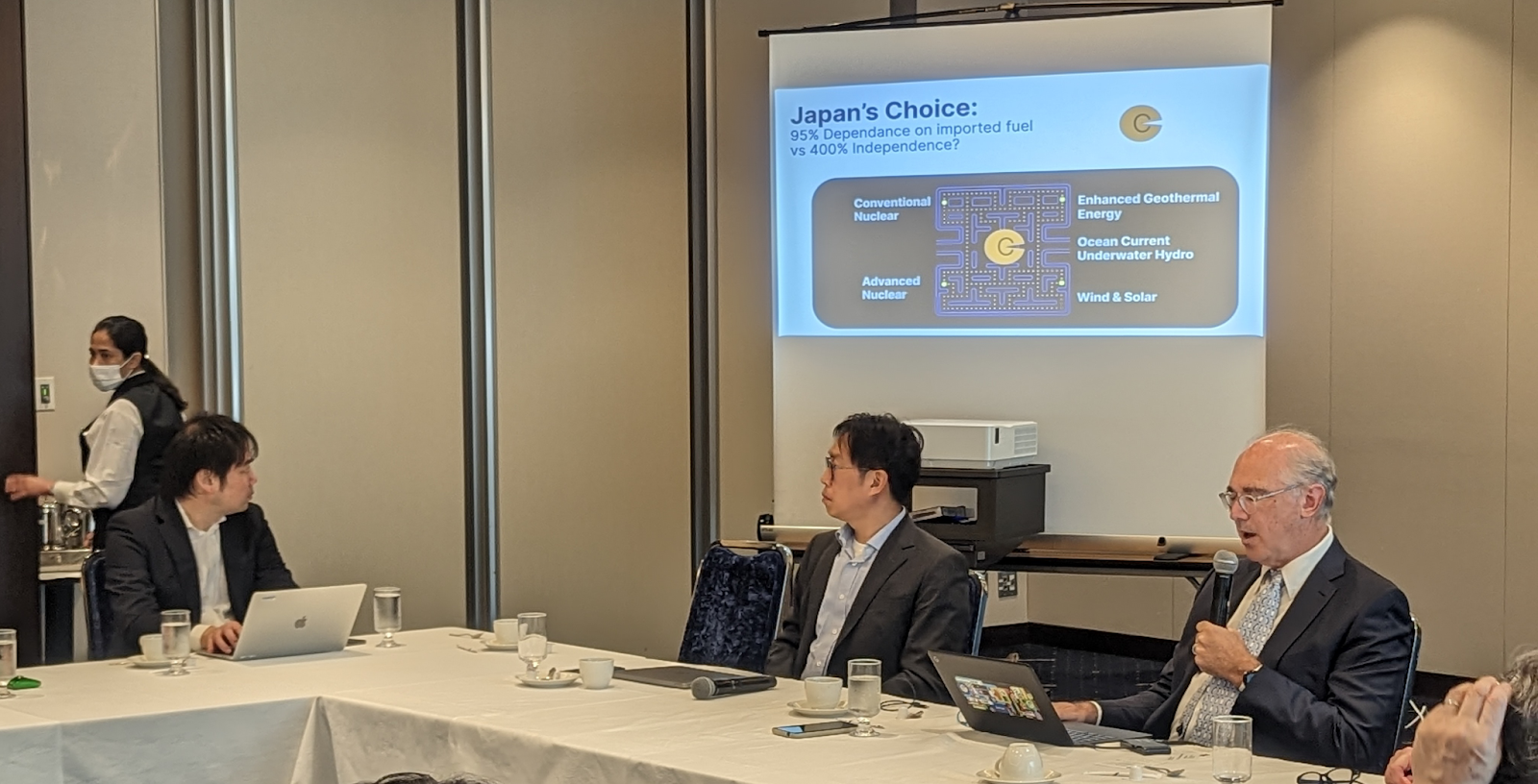Anthropocene Institute hosts event at The Foreign Correspondents Club of Japan (FCCJ)
Tokyo - May 19, 2023 – Anthropocene’s Carl Page and Frank Ling organized an off-the-record briefing at the FCCJ in Tokyo for a selection of professionals involved in Japan’s nuclear industry. The presentation focused on technology and engineering developments in nuclear technology, some of which Japan is engaged in and others where Japan is already playing a leading role.
Japan is still planning for nuclear power to generate 22 percent of its electricity by 2050. Currently, the contribution of nuclear energy is less than five percent.
The audience included senior members of the Japan Atomic Industrial Forum, the Institute for Energy Economics in Japan, Hitachi Nuclear, Tokyo Institute of Technology, as well as journalists, investors, and advocates for nuclear energy.
The Anthropocene presentation was entitled “Stabilizing Spaceship Earth for Security Safety and Prosperity.” The link to the full presentation is here.

Anthropocene’s Carl Page (President) and Frank Ling (Chief Scientist)
Carl outlined for the Japanese audience the benefits of nuclear energy for water desalination, synthetic fuels, growing proteins, recycling, medicine, and education, among other benefits. He also reiterated that adopting the 1980s French energy plan would have significantly reduced global environmental degradation. One of the Japanese start-ups, which participated at the FCCJ event, is already a leader in the Nuclear Fusion IP race, having created 11 Cold Fusion patents. Other Japanese companies are leading as well.
Carl stressed the importance of Japan building on this momentum to reduce the reliance on fossil fuels and to avoid becoming over-reliant on China, which is already making significant progress and leading in SMR deployment. He also reminded the audience on the feasibility of converting Japanese coal and natural gas plants to nuclear power.
Fortunately, on May 31st, eight days after the Anthropocene presentation, the Japanese government passed legislation that enables the working lives of Japan’s existing nuclear reactors to be extended beyond 60 years, bringing the G7 country more in line with international standards.
Several follow-up events have been scheduled to have further discussions with the participants on the nuclear technologies discussed during the event and to draft specific action plans.